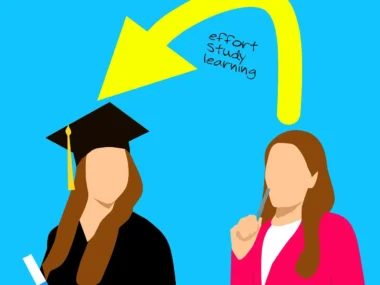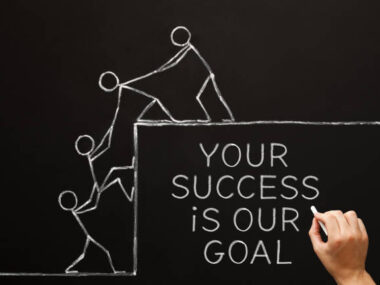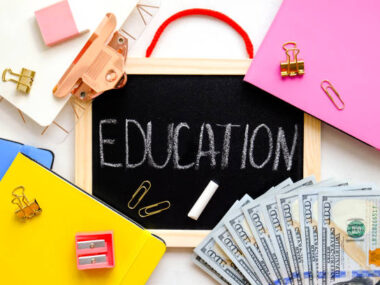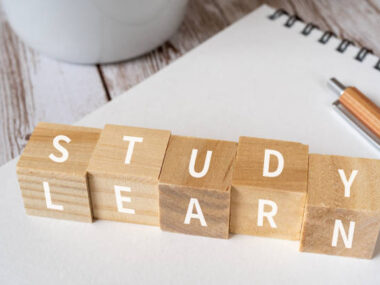Education constantly evolves, adapting to new research, technologies, and methodologies that promise to improve student learning outcomes. Within this dynamic landscape, “benchmark education” has emerged as a critical concept in understanding and navigating the effectiveness of instructional techniques and curriculum designs. This term might sound technical on the surface, but it is deeply rooted in the everyday learning experiences of students across educational levels.
In this search of the benchmark education model, we will delve into what benchmarks are, how they can be determined for different grade levels, and whether they integrate personalized approaches to cater to individual student needs.
What is Benchmark Education?
Benchmark education is an invaluable tool within the realm of academics. It consists of a series of standards or criteria designed to evaluate and measure student performance in comparison to predetermined educational goals. The essence of benchmarking in education lies in:
- Establishing clear, objective standards for student learning
- Providing a framework for consistent and equitable educational evaluations
- Implementing assessments throughout the school year to monitor progress
- Identifying students who may require additional support to reach academic benchmarks
- Holding schools and educators accountable for student learning outcomes
Through this process, not only do educators gain insights into the efficacy of their teaching methods, but they also ensure that students are receiving a quality education that meets a standardized level of excellence.
Setting the Bar for Educational Success
A few sentences introducing the concept of determining benchmarks can provide meaningful context:
Examine national and state educational standards for target skills and knowledge based on grade level
Understand developmental milestones that inform learning capabilities
Analyze historical student data to refine benchmarks that align with current abilities
Engage with experienced teachers for insights on realistic expectations
Tailor benchmarks to effectively encompass diversity in learning needs
Examples of Defining Benchmarks
National Standards: Reference Common Core or state-specific guidelines to align benchmarks with widely recognized educational goals.
Developmental Milestones: Integrate social and cognitive milestones, like problem-solving and cooperative play, to match age-appropriate benchmarks for kindergarten students.
Data Analysis: Utilize past state testing results to adjust benchmarks that reflect not only the expected outcomes but also consider students’ starting points.
Benchmark education thus becomes a proactive approach, enabling a diverse student body to strive towards and achieve academic excellence.
Determining Appropriate Benchmarks Across Grade Levels
Determining appropriate benchmarks for various grade levels is not a one-size-fits-all process. It involves:
- Consulting national and state education standards to understand expectations
- Considering cognitive and emotional development stages
- Reviewing past student performance data for trends
- Collaborating with teachers on practical and attainable goals
- Ensuring that benchmarks are inclusive to all learning styles and requirements
The Blueprint to Educational Milestones
A solid paragraph about determining benchmarks for different grades might elaborate:
- Use curriculum guidelines from trusted educational authorities.
- Integrate knowledge about child and adolescent development.
- Examine scores, student work samples, and teacher assessments for a data-driven approach.
- Gather firsthand input from classroom teachers to ensure benchmarks reflect the reality of student abilities.
Adapt the framework to represent the diversity of the classroom, making room for varying learning speeds and methods.
Examples
Educational Standards: Third-grade benchmarks might include specific reading fluency and comprehension levels.
Developmental Milestones: For middle schoolers, benchmarks geared toward enhancing critical thinking and problem-solving scenarios can be considered.
Analyzing Data: Using tools like comparative graphs and historical reports to ascertain in which academic areas the aggregate student body excels or needs more focus.
Tailored benchmarks facilitate a more accurate and fair assessment of student’s academic prowess, leading to targeted strategies that address the unique needs and potential of every learner.
Standardized Tests and Benchmark Education
Standardized tests are the yardsticks often used in conjunction with benchmark education; they provide empirical data against which student progress can be measured. These assessments:
- Confirm whether educational benchmarks are met.
- Comprise various formal tests including state and district-wide exams.
- Generate data that informs teaching strategies.
- Spark discussions about their effects on student wellbeing and curriculum integrity.
Measuring Success or Stress?
A paragraph about the role of standardized tests in benchmark education could include:
Clarify the types and purposes of standardized tests within the benchmarking framework.
Address the strengths and weakness of relying heavily on test data.
Consider the perspective of education stakeholders on student experience and academic growth.
Examples
State Achievement Tests: For example, tools like the Smarter Balanced Assessment in certain states evaluate grade-level proficiency in English and Math.
National Evaluations: Programs like the National Assessment of Educational Progress (NAEP) provide a broader view of educational performance countrywide.
District Exams: Periodic examinations that provide immediate, relevant data for individual schools and their populations.
The use of standardized tests within benchmark education comes with its controversies, necessitating continual reevaluation to maintain a balance between assessment data and overall student development.
Balancing Assessment Frequency with Student Needs
Determining the right frequency for benchmark assessments is critical to gather necessary information while avoiding assessment burnout. Considerations are:
- Finding equilibrium to track growth without overwhelming students.
- Conducting regular assessments for real-time academic intervention.
- Scheduling evaluations at pivotal moments during the academic term.
- Adapting schedules based on subject and age group to maintain relevance.
Timing Is Everything in Education
In elaborating on assessment frequency:
Highlight the importance of strategic timing for assessments that benefits learning without creating excessive pressure.
Discuss the value of immediate feedback and its potential in impacting student outcomes positively.
Examples
Beginning-of-Year Assessments: Gauge initial proficiency levels to plan for the year ahead.
Midyear Reviews: To check in on progress and recalibrate teaching strategies accordingly.
End-of-Year Summary: To confirm annual educational goals were met and prepare for future curricula.
Frequent, thoughtful assessments construct a roadmap for a successful educational journey, ensuring that each student’s unique learning trajectory is acknowledged and supported.
The Individualization of Benchmark Education
Benchmark education does not have to be rigid; in fact, customizing it to individual student needs is a sign of a progressive and responsive educational system. Personalization involves:
- Adjusting benchmarks to cater to the myriad learning styles and abilities.
- Creating tailored learning plans based on benchmark data.
- Leveraging technology, like adaptive software, for individualized learning paces.
- Implementing a continuous feedback loop to adjust benchmarks dynamically.
Crafting Personal Learning Experiences
A paragraph about individualized benchmark education might touch on:
The importance of recognizing and respecting each student’s learning journey.
Ways in which educators can use data to not only set goals but to adapt the paths students take to reach those goals.
Examples
Personal Learning Plans: For a student falling behind in reading, a custom plan integrating audio books could be developed.
Adaptive Learning Software: Utilization of intelligent tutoring systems that adjust the complexity of problems based on student responses.
Feedback Loops: Regular checks and reflections with students to ensure benchmarks are challenging, yet attainable, and readjusting them as needed.
Personalizing benchmark education ensures that each student can navigate their educational journey in a way that is most effective for their individual learning process.
Navigating Through Benchmark Education Solutions
Benchmark Education Solutions embody the services and resources aimed at improving learning outcomes. These solutions entail:
- Providing personalized tutoring and test preparation services.
- Offering specialized programs aligned with educational standards.
- Supplying tools and strategies for comprehensive tracking of progress.
- Supporting educators with assessment tools for data-driven instruction.
- Concentrating on evidence-based techniques to enhance both teaching and learning.
Empowering Educational Achievement
Delving deeper into Benchmark Education Solutions one might discuss:
The suite of resources made available for various educational needs and how they align with standards.
The impact such assistance can have on students’ readiness for academic challenges.
Examples
Tutoring Services: In-home or online assistance tailored to individual subject deficiencies and learning styles.
Test Prep Programs: Targeted strategies for high-stakes exams such as SAT, ACT, and state assessments.
Assessment Tools: Comprehensive analytical platforms that allow educators to track progress and understand areas needing improvement.
Benchmark Education Solutions provide targeted strategies to bridge learning gaps and push towards greater educational achievements.
Benchmark Education Reviews from the Field
The efficacy of Benchmark Education is often reflected in reviews from those it impacts directly. These reviews:
- Highlight the resource-rich nature of the program.
- Appreciate the program’s role in improving literacy through differentiated instruction.
- Note the inclusivity and accessibility of the program for ELLs and learners with diverse needs.
- Sometimes point out the costs or the learning curve for educators.
- Often culminate in affirmations of the program’s positive impact on student engagement and achievement.
Real-World Insights into Benchmark Literacy
This section would dive into testimonies and critiques, offering:
A balanced view of the program’s practical application and results.
A reflection on how educators and students adapt to and benefit from the resources.
Examples
Effectiveness in Literacy Improvement: Teachers reporting marked progress in student reading levels.
Inclusivity for Diverse Learners: Classrooms finding value in specially designed Benchmark Education materials for ELLs.
Feedback on Usability: Insights on the ease or challenge of integrating Benchmark resources into existing curricula.
Receiving reviews from those at the education frontlines offers valuable understanding of how broadly and effectively Benchmark Education’s approaches are applied.
Benchmark Universe: A Hub for Educational Resources
Benchmark Universe acts as a comprehensive platform that extends the reach of Benchmark Education. This intuitive online ecosystem offers:
- An extensive collection of digital educational resources and books.
- A suite of tools for managing and tracking student progress.
- Capabilities for educators to tailor lesson plans and assignments.
- Accessibility on a variety of devices, supporting an inclusive learning experience.
Bringing Innovation to the Classroom
A deeper look at Benchmark Universe reveals:
The ways in which digital transformation can act as a catalyst for educational advancement.
The importance of having a centralized hub for both in-person and remote learning scenarios.
Examples
Rich Resource Libraries: The platform provides a wealth of leveled texts to cater to students at varying reading stages.
Customizable Content: Educators can create individualized lessons that directly address each student’s progress.
Cross-Device Platforms: Seamless integration into the modern, tech-savvy classroom environment with tablet, smartphone, and laptop compatibility.
Benchmark Universe demonstrates how technology is becoming an indispensable ally in the journey of education, enhancing how educators impart knowledge and how students consume it.
Benchmark Education Company jobs
When venturing into the world of educational employment, Benchmark Education Company (BEC) is a beacon for those passionate about making a significant impact on the learning journeys of students. This innovative company specializes in creating educational materials designed to elevate the literacy levels of students across diverse classrooms.
A Glimpse into Benchmark Education Company Career Opportunities
Benchmark Education Company provides various job opportunities that range from editorial positions to sales, customer service, and beyond. Each role is critical in delivering high-quality, research-based educational resources that cater to both traditional and digital classrooms. The company’s commitment to professional development and educational equity creates a workplace culture vibrant with collaboration and creativity.
Editorial and Content Creation Roles
For those with a flair for language and an eye for detail, BEC often seeks talented editors, writers, and content developers. These roles are pivotal in crafting meaningful and compelling educational content that aligns with state standards and educational best practices. Employees in this department work closely to ensure that materials not only engage students but also support teachers in delivering effective instruction.
Sales and Customer Engagement Positions
A career in sales with Benchmark Education Company is perfect for individuals who are not only results-driven but also driven by the impact that their work has on education. Sales professionals at BEC are advisers to educators, helping them find the right solutions for their classrooms that foster an inclusive and dynamic learning environment.
Individuals in customer service roles are the frontline in ensuring a satisfying customer experience, providing support, and building lasting relationships with educational institutions.
Technology and Digital Platforms
In an age where virtual learning has gained an incredible foothold in education, BEC offers roles for tech-savvy professionals. From managing digital platforms that host the company’s content to developing innovative applications for learning, these jobs are at the heart of BEC’s mission to deliver accessible education through technology.
Operations and Logistics
Behind every effective education company is a team dedicated to the seamless operation and distribution of products. BEC employs individuals who excel in logistics, supply chain management, and operations to ensure that teachers and students have the materials they need, when they need them.
Marketing and Communications
Communicating the value of educational products and creating engaging campaigns is crucial for reaching a broader audience. BEC’s marketing department is charged with extending the company’s reach through thoughtful branding, digital marketing strategies, and showcasing the success stories that come from using their materials.
Why Consider Joining Benchmark Education Company?
Joining BEC is not just about taking on a job; it’s about embracing a calling to contribute to the educational landscape. Employment at Benchmark Education Company offers the following advantages:
- Professional Growth: BEC encourages continuous learning and provides opportunities for career advancement.
- Mission-Driven Work: Employees are part of a larger purpose—to elevate student learning and literacy.
- Collaborative Environment: BEC values teamwork and fosters an inclusive atmosphere where every voice is heard.
Elevating Standards, Enhancing Learning
In the pursuit of academic excellence, benchmark education stands as a guidepost for structuring effective learning experiences. Rigorously developed standards, thoughtful assessment timing, personalized learning plans, resource-rich solutions, and adaptive digital platforms coalesce to advance the educational mission.
As we continue to embrace and refine these approaches, students, educators, and schools can better navigate the evolving challenges and opportunities that lie within the rich landscape of learning. With informed practices, collaborative tools, and a focus on inclusion, the potential to transform education for the better remains limitless.
Benchmark education, in essence, is a call to elevate teaching and learning experiences, ensuring every student can reach their full potential in a supportive and enriching environment.






